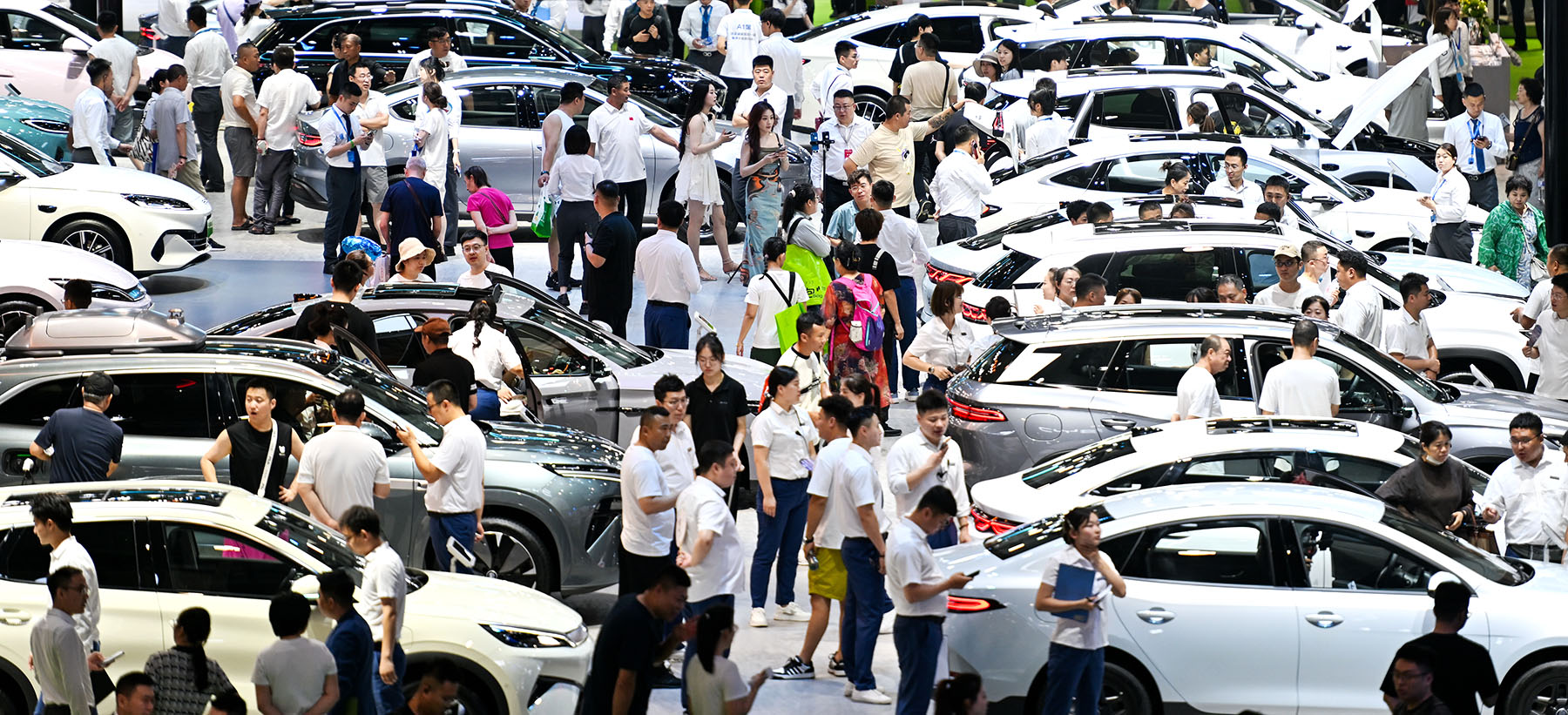Makers and industry association say damaging behaviors must end

Despite the sustained positive momentum of China's automotive market, the leading industry association and automakers are calling for the establishment of a healthy industrial ecosystem to navigate intensifying competition and ensure sustainable development.
Fu Bingfeng, secretary-general of the China Association of Automobile Manufacturers, highlighted the market's strong performance in the first half at the 2025 China Auto Forum held in Shanghai from July 10-12.
In the first six months of 2025, domestic automobile production and sales both exceeded 15 million units for the first time, with year-on-year increases of 12.5 percent and 11.4 percent respectively, data from the CAAM shows.
READ MORE: 2025 CFO seminar on NEVs successfully concluded
New energy vehicle sales reached 6.94 million units during the period, a 40.3 percent jump from 2024, accounting for 44.3 percent of total new vehicle sales. The association forecast that NEV sales will reach 16 million units this year, making up half of the total vehicle sales.
Fu noted that this achievement was hard-earned, with the industry in recent years grappling with challenges including the COVID-19 pandemic, chip shortages, escalating battery material costs, and mounting "involution", where growth fails to translate into profits.
As automakers compete for market share and survival, the industry has seen intense competition marked by price wars and unethical marketing practices, which have polluted the industry's ecosystem and hindered its healthy growth, Fu added.
To address these problems, Xu Niansha, president of the China Machinery Industry Federation, proposed establishing mechanisms for industry self-discipline, mediation, arbitration, and legal aid, which would curb disorderly competition, reduce overdue payments, and foster an ecosystem rooted in integrity, collaboration, and progress.
Wan Gang, president of the China Association for Science and Technology, emphasized at the forum that China's auto industry must unite and collaborate to drive its transformation and upgrading.
With a focus on electrification, intelligence, and low-carbonization, the industry has made progress in NEV and related infrastructure development. Future efforts should target hydrogen fuel cell vehicles, backed by coordinated policies to advance their development alongside hydrogen energy, Wan said.
Automakers who suffered from the intense competition are now changing their strategies. Yin Tongyue, chairman of Chery Automobile, said that China's auto sector has shifted from scale-driven growth to quality competition. Having once been involved in price wars, Chery now prioritizes quality and innovation over short-term profits.
He called on the government to strengthen guidance and assessment on brand building and technological innovation, while urging the capital market to be more patient with companies.
Avatr President Chen Zhuo described the current market as "adding a 100-meter sprint elimination round to a marathon race".He cited unprecedented complexity from rapid technological shifts, evolving consumer demands, stricter regulations, and cutthroat competition.
Chen stressed the need for companies to embrace a long-term view.
International brands also voiced concerns at the forum. Sean Green, president and CEO of BMW Group Region China, cautioned that involution-style competition poses a threat to the industry's sustainability. Prolonged price wars, he noted, have compressed profit margins to dangerously low levels.
He emphasized that if this issue remains unresolved, it will result in quality degradation, hinder innovation, and impede long-term growth.
"Only when fairness prevails can the market thrive," Green said, adding that through sustained collaboration and tangible actions, a robust interdependence can be established — one that drives the continuous prosperity of the industry.
This year has seen intensified efforts to regulate the market. In March, the CAAM urged automakers to halt weekly sales rankings to prevent fragmented information and reduce market disruption from misleading public opinion. April brought a joint proposal to standardize driving assistance promotions, followed by a May initiative to safeguard fair competition.
In June, the Ministry of Industry and Information Technology voiced support for domestic automakers' commitments to shorten payment terms for suppliers to curb destructive competition and promote the healthy development of the industry, overseeing some 20 major automakers' adherence to payment commitments.
ALSO READ: China's NEV registrations hit record 5.62m in H1 2025
Fu stated that anti-involution efforts have yielded positive results, with leading automakers taking proactive steps to stabilize supply chains and protect suppliers' interests.
To prevent "involution spillover", the CAAM is guiding automakers to respect local cultures and laws during overseas expansion. "Chinese automakers must put their house in order before going global, rejecting cutthroat tactics," Fu said.
Against a backdrop of geopolitical shifts reshaping global supply chains, Green noted that globalization now requires balancing free trade with supply chain resilience to forge new standards that prioritize both efficiency and security.
Contact the writer at caoyingying@chinadaily.com.cn


